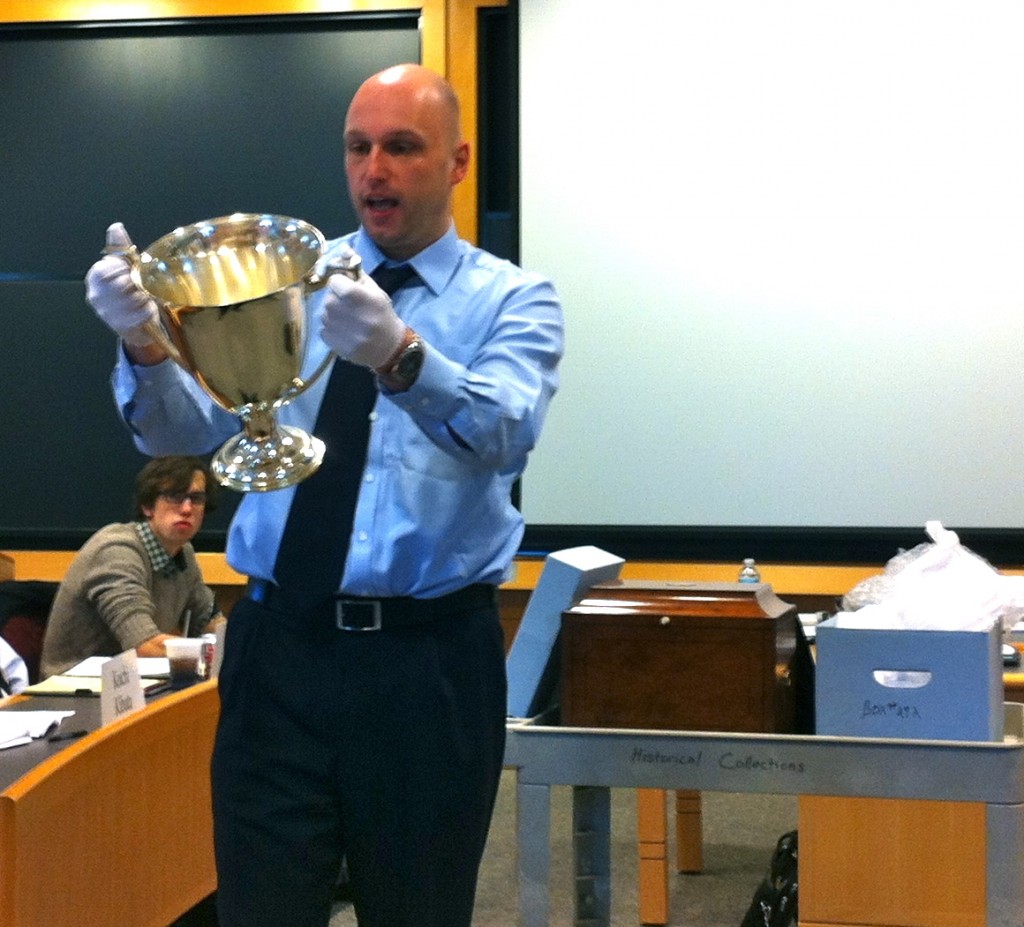J.P. Morgan (CMC, Thursday, Week 4)
coming-of-managerial-capitalismyear-twoPure silver cup gifted to George F. Baker (head of First National Bank) for his 80th birthday
Source of power: Morgan "brands" money (with his personal and professional reputation)...and it makes government distinctly uncomfortable.
==> Money Trust Investigations: Most American wealth at the start of the 20th century lies in the hands of 180 men working for five banks. No railroad or corporation could realistically shift its business from one bank to another.
Huge banking syndicates "fix" many of the natural monopoly problems for railroads.
Morganization:
(1) Reorganize => lower fixed costs by altering debt covenants
(2) Convert debt to equity => easier to raise capital, spread out ownership, no interest payments
(3) Stop downward pressure on prices => "communities of interest" = a fancy word for cartels
(4) Personal investment by finance tycoons => lend aura of stability/certainty
(5) Take board seats => interlocking ownership of roads = economic disincentive to cheat on price-fixing agreements
(6) Trusts => faster decisions, influence by proxy
===> Forerunner of modern Chaper 11 reorganization (long-term perspective, DIP financing, wipe out equity holders/give firm to creditors, streamline decision-making)
Morgan = central bank powers lie in a single man
Pros: seems to work pretty well in crisis (Panic of 1907)
Cons: frontpage NY Times story when JPM catches a cold (consolidated risk), is JPM a benevolent autocrat or a calculating, self-interested tycoon?
Evidence on both sides; Morgan's bank ends up with millions in fees and 14% of equity for advising International Harvester re-org --- doesn't seem like arm's length capitalism.
